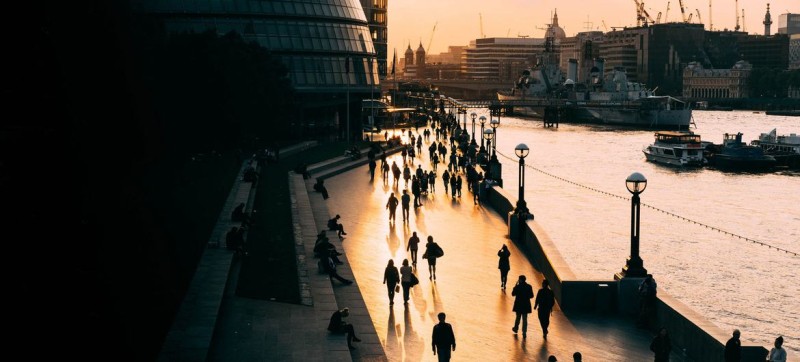
© Unsplash/Kid Circus The UN Human Rights Chief has described the UK’s legislation as ‘deeply troubling.’
UN High Commissioner for Human Rights, Volker Türk, called the Public Order Bill “deeply troubling legislation”, after it completed its passage through parliament on Wednesday.
“It is especially worrying that the law expands the powers of the police to stop and search individuals, including without suspicion; defines some of the new criminal offences in a vague and overly broad manner; and imposes unnecessary and disproportionate criminal sanctions on people organizing or taking part in peaceful protests,” Mr. Türk said.
He appealed to the UK Government to reverse the legislation, which has yet to receive Royal Assent, “as soon as feasible”.
The Government insists that the fundamental right to protest is still protected under the legislation, but it brings in new penalties for so-called “guerrilla tactics”.
The bill was introduced to crack down on disruptive protests by activists such as the Just Stop Oil and Extinction Rebellion groups, which have used tactics such as blocking roadways and chaining themselves to railings, including those around the UK Parliament in central London.
Tweet URL
Environmental protesters targeted
The UN rights chief stressed that the law’s apparent targeting of “those protesting about human rights and environmental issues” was particularly concerning.
“As the world faces the triple planetary crises of climate change, loss of biodiversity and pollution, governments should be protecting and facilitating peaceful protests on such existential topics, not hindering and blocking them,” Mr. Türk said.
‘Unnecessary’ expansion of police powers
Mr. Türk insisted that the law was “wholly unnecessary”, given the UK police’s existing powers to act against violent demonstrations. He also criticized the criminalization of protests linked to the new legislation.
The Public Order Act introduces “Serious Disruption Prevention Orders” which, according to the UN rights chief’s office, have the potential to significantly limit the freedoms of protesters, by allowing courts to ban individuals from being in certain places at certain times, being with particular people, or even to limit the way they use the internet.
On the basis of the new law, individuals could be electronically monitored to ensure compliance, even if they have never been convicted of any criminal offence.
‘Pre-emptive’ rights limitations
Mr. Türk said that governments needed to facilitate peaceful protests while “protecting the public from serious and sustained disruption”, but that the Public Order Act could “pre-emptively limit someone’s future legitimate exercise of their rights”.
The UN rights chief also warned that the new law “regrettably weakens human rights obligations” which the UK has “long championed” in the international arena.

